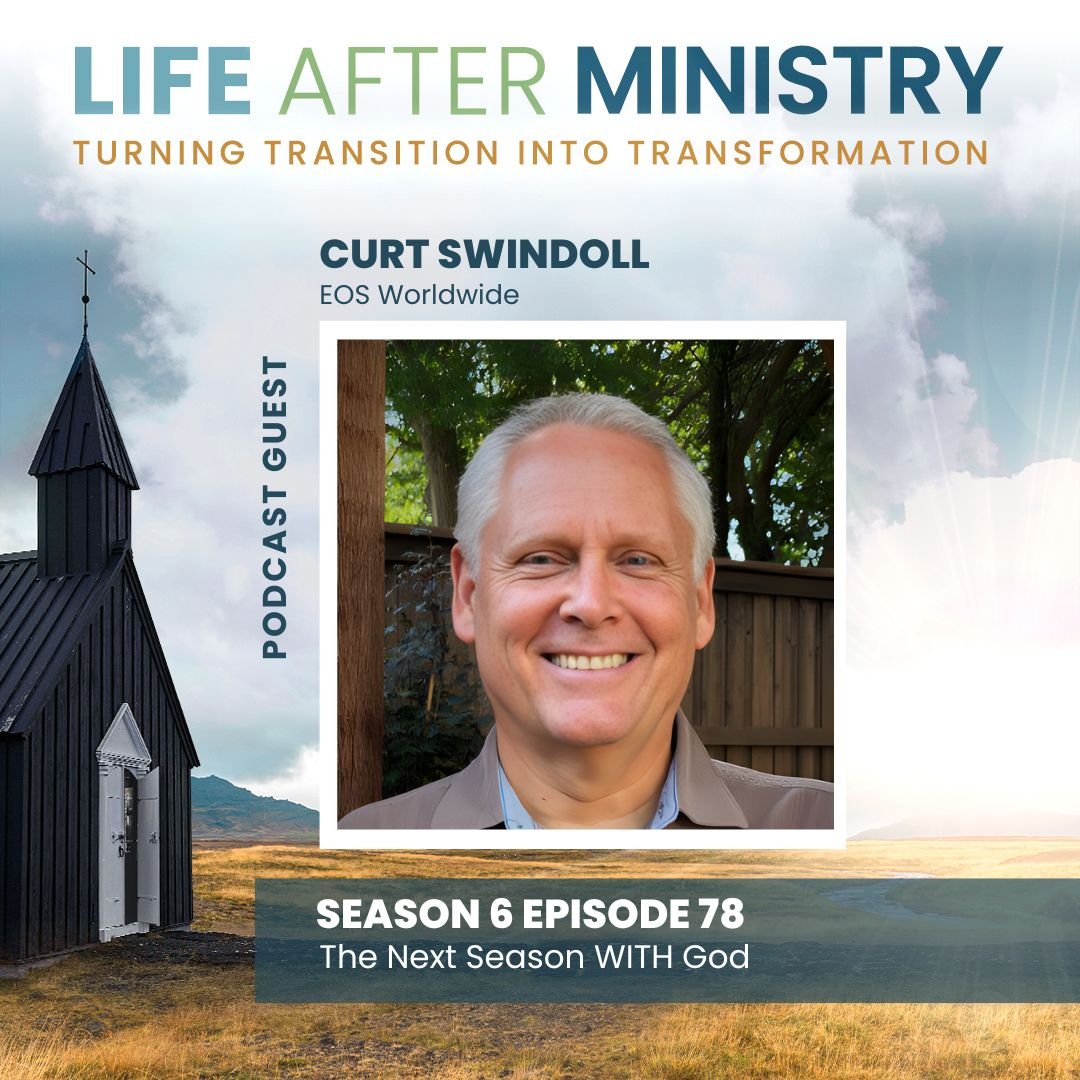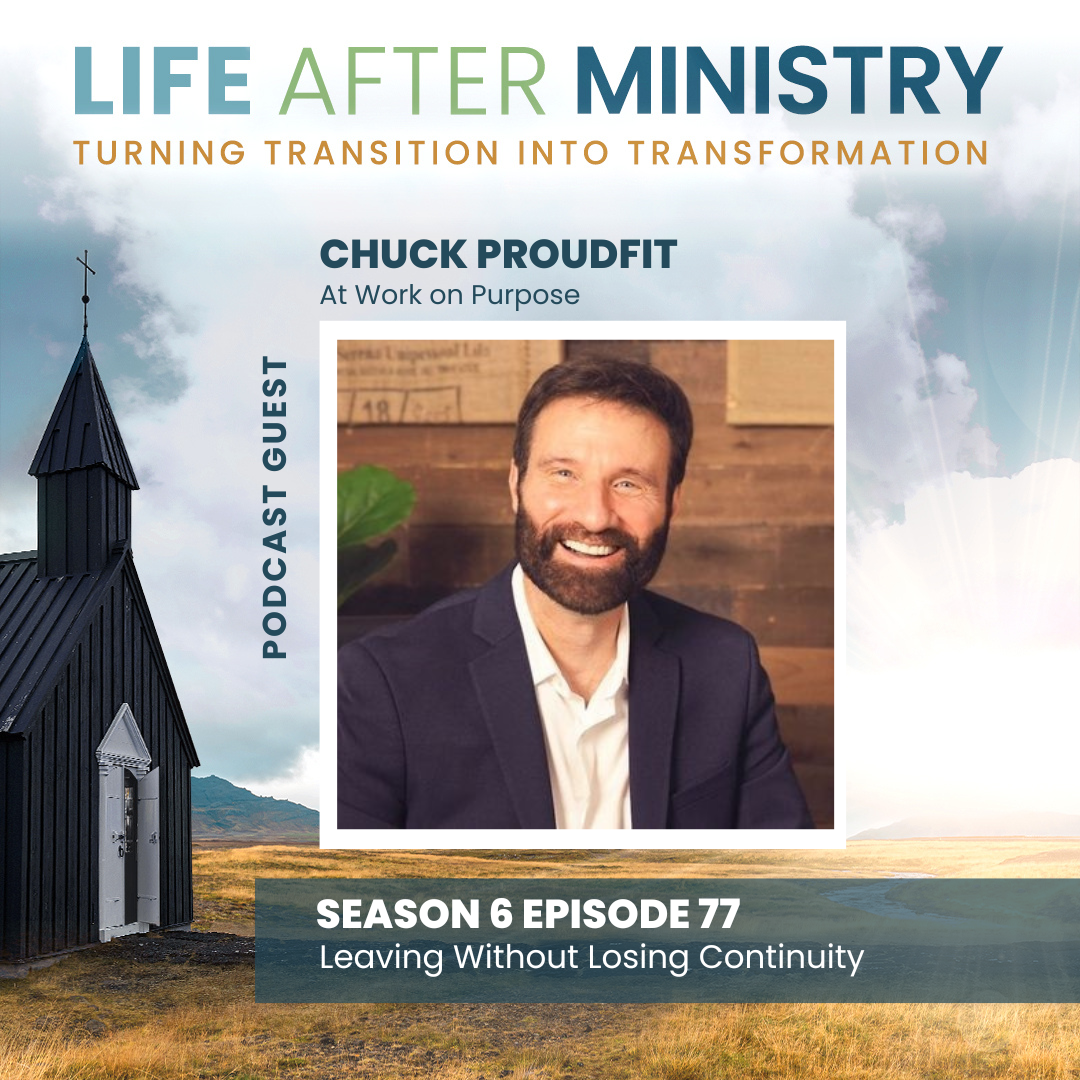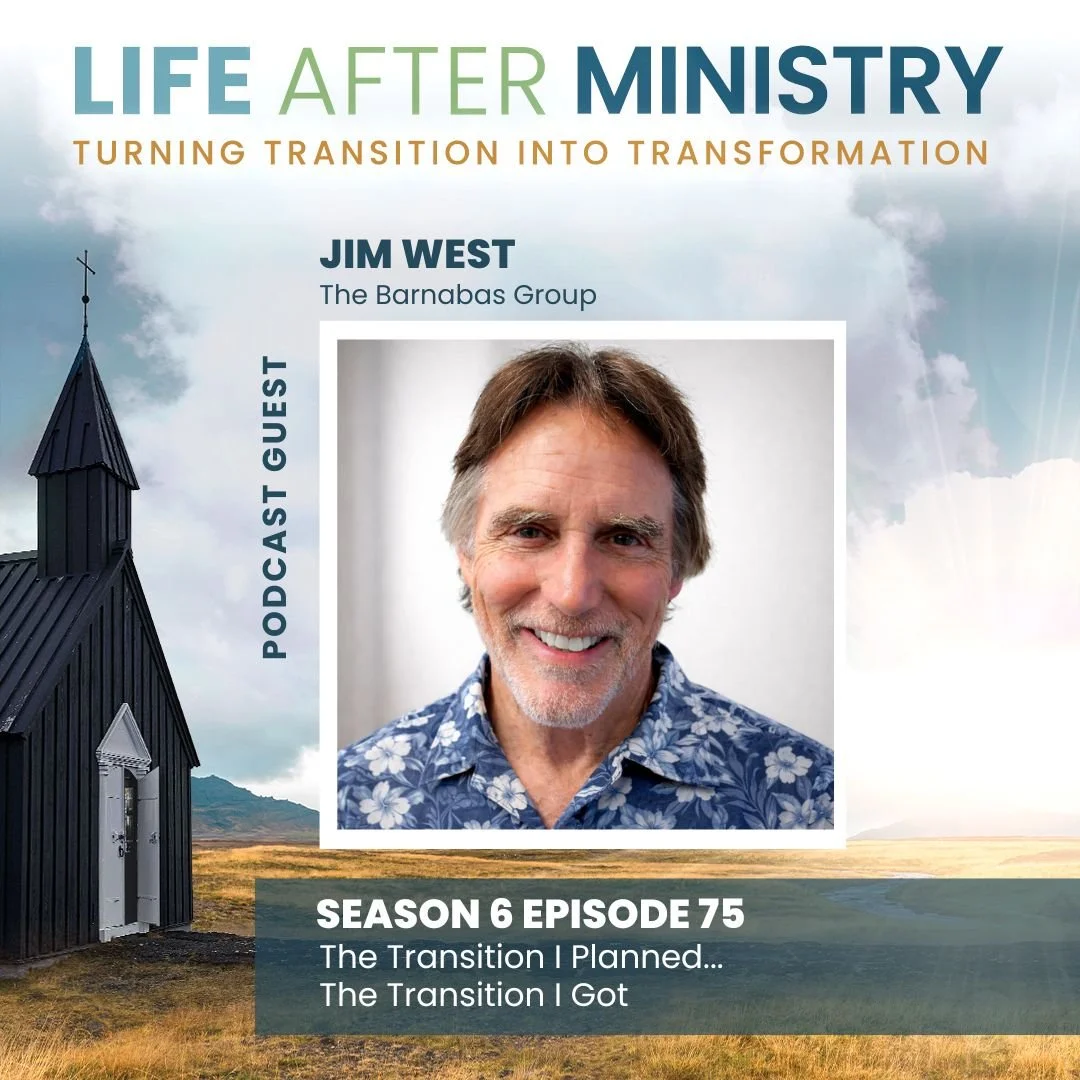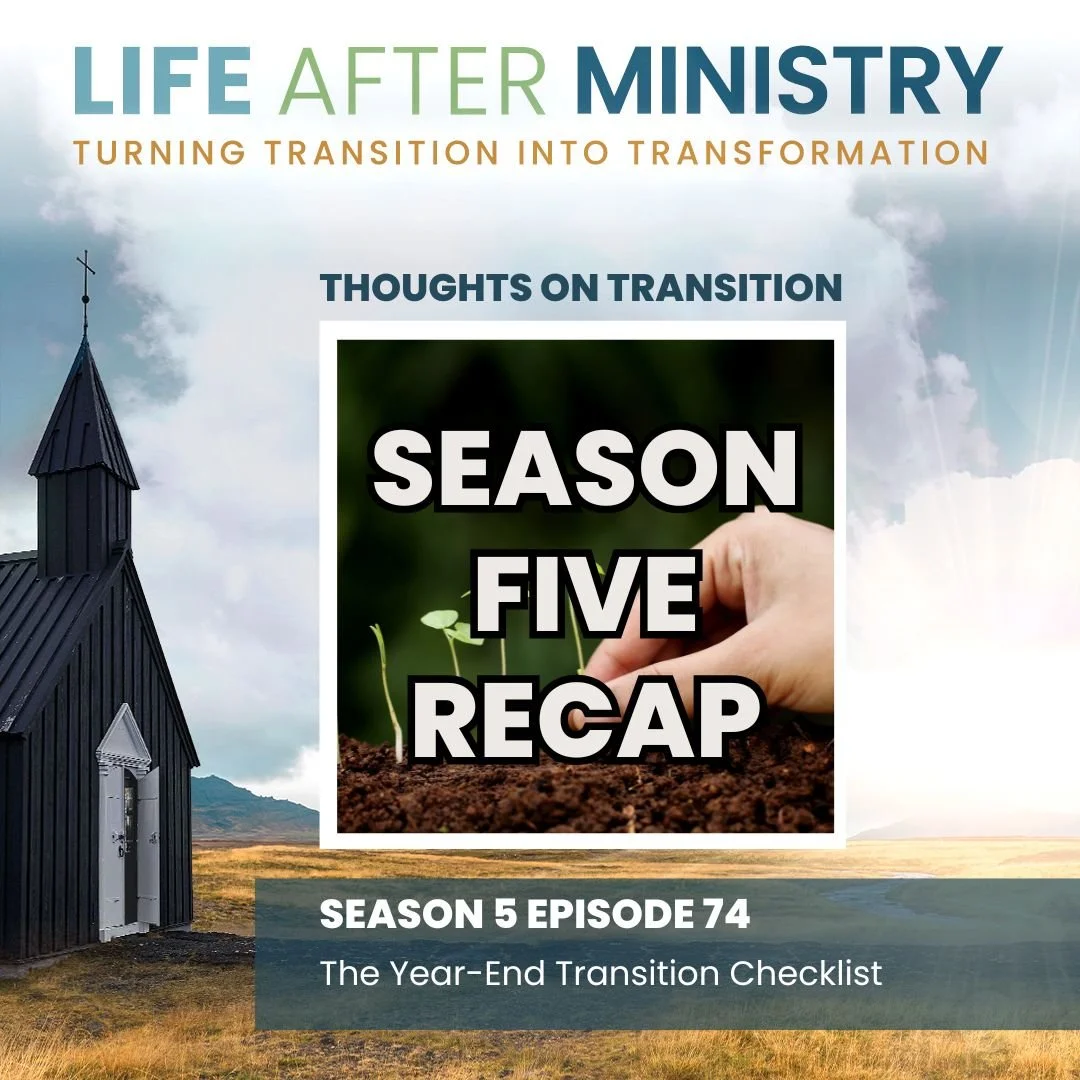Ministry Successions: How to Do It Well Without the Wreckage
There was no scandal. No moral failure. No split. Just a quiet but unmistakable sense that it was time.
The ministry leader had led for decades - through growth and pruning, through revival and fatigue. He had fueled the ministry from a God-given passion to impact His Kingdom.. But now? He was tired. Not in a burnout sense, but soul-tired. And his board knew it.
What should have been a sacred moment, the faithful handoff of leadership, instead became a slow, silent unraveling. No clear plan. Confused staff. A divided staff, donor base and congregation. Hurt feelings. And eventually, a fractured legacy.
Sadly, this isn’t rare. It’s normal.
When Transition Becomes Trauma
For all our preaching about leadership, we rarely talk about leaving well.
Ministry transitions are often treated like corporate resignations - quiet exits, closed-door decisions, vague announcements. But churches and mission-driven organizations aren’t solely profit-centered businesses. They’re families. And transitions handled poorly don’t just impact staff and structure, they impact souls.
We’ve walked with leaders who left ministry quietly, only to find themselves spiraling in identity loss, depression, and financial crisis. We’ve worked with churches and ministries whose giving dropped 40% overnight after a beloved founder left without clarity. And we’ve sat in rooms where elders didn’t speak to each other for months because no one knew how to handle what came next.
Ministry succession is a moment of great opportunity and enormous risk. But it doesn't have to end in wreckage.
The Myth of Smooth Transitions
There’s a pervasive belief in ministry leadership that if you just pray enough, work hard enough, and find the "right fit" for the next leader, the transition will be easy.
But that’s a myth. Because succession isn't just about finding a new leader. It's about:
Preparing the people
Honoring the past
Reframing the future
Supporting the one who is leaving
Empowering the one who is coming
It requires more than a search committee and a few sermons. It requires intentional strategy, relational equity, and emotional intelligence.
And most ministries and churches simply aren’t equipped to handle it.
A Better Way: Succession as a Discipleship Opportunity
At Ministry Transitions, we believe succession isn’t just a staffing move. It’s a discipleship moment. It’s a chance to model Christlike love, humility, and unity.
When done well, it can:
Affirm the calling of the outgoing leader without idolizing them
Cast vision for a future that builds on, not buries, the past
Care deeply for the emotional and financial health of the leader and their family
Prevent congregational confusion or division
Multiply—not divide—the impact of your mission
But getting there requires a shift in thinking.
From Founder to Framework
One of the biggest blind spots in succession is founder dependency. When a ministry’s identity is tied to one person, even subtle shifts can feel like a betrayal.
That’s why we guide ministries through a re-framing process, shifting focus from "person" to "purpose."
We ask questions like:
What is your mission apart from the founder?
Where has the culture become personality-driven?
What will it take to move from legacy to multiplication?
It’s not about erasing the founder’s imprint. It’s about translating it into something transferable.
Identifying the Ideal Next Leader
If the ministry can talk, what would it say the qualifications of its next leaders should be?
Oftentimes, the profile of the next leader to guide the ministry through its next phase of growth and Kingdom impact is very different from that of the Founder. Analyzing where the ministry stands now and the strategic growth direction God and the leadership/Board believes it should grow to is paramount in selecting the next leader. Obtaining an objective third-party perspective can be invaluable in determining the next generation leader.
Preparing the One Who’s Leaving
The hidden cost of succession is the silent crisis most outgoing leaders face.
When you’ve poured your life into a ministry, who are you without it?
We walk leaders through the emotional, spiritual, and vocational layers of transition:
Career Coaching: Helping them discern what’s next.
Counseling: Processing grief, identity, and calling.
Communication Strategy: Ensuring their departure is clear, healthy, and honors everyone involved.
Ministry doesn’t end when a leader steps down. But if no one helps them process that moment, they may feel like it does.
Preparing the One Who’s Coming
Equally important is preparing the incoming leader.
Too often, they step into a vacuum—unrealistic expectations, unclear vision, unresolved hurt. We equip boards and staff to:
Clarify what the new leader is stepping into
Establish healthy rhythms and boundaries
Set expectations with the congregation
Leadership succession isn’t just about baton-passing. It’s about pace-setting.
What’s at Stake
When transitions go poorly, the cost is staggering:
Staff turnover
Congregational exits
Financial instability
Loss of trust
Missional drift
But when done well?
Outgoing leaders feel honored and equipped for their next season
New leaders feel empowered and supported
The congregation sees a model of unity and maturity
The mission continues and even multiplies
This is what we mean by X not ÷. Transitions should multiply the Kingdom, not divide the Church.
The Paradigm Shift We Need
What if we stopped treating transitions as threats?
What if we began seeing them as sacred rhythms?
Jesus prepared His disciples for His departure. Moses raised up Joshua. Paul handed off to Timothy. These weren’t interruptions to the mission. They were the mission.
We believe it’s time to recover a theology of transition—one that doesn’t fear change but forms Christ in the process.
Let’s Write a Different Story
We know the damage transitions can cause. We’ve seen it. We’ve lived it. But we’ve also seen the beauty of doing it differently.
Churches that plan ahead. Boards that love well. Leaders that finish strong. Congregations that rally together.
This is possible. And we’d love to help.
If you're facing a transition, don’t wait for a crisis to get clarity.
Let’s talk now—while there’s still time to multiply, not divide.
Because your mission matters too much to leave it to chance.
Bill Tom has spent over 35 years in marketplace leadership, serving in roles from HP design engineer to Silicon Valley executive and business owner. Alongside his corporate journey, he’s built Christ-centered communities in the workplace and founded FUSION Leaders to connect marketplace believers. Through his work in executive coaching and search, Bill began walking alongside displaced pastors - hearing their stories and recognizing the unique pain of ministry transitions. That compassion led to the founding of Ministry Transitions. He holds engineering and business degrees from UC Berkeley, Santa Clara University, and Golden Gate University. Bill lives in California with his wife, Linda, and is a proud dad of four artistic children.









